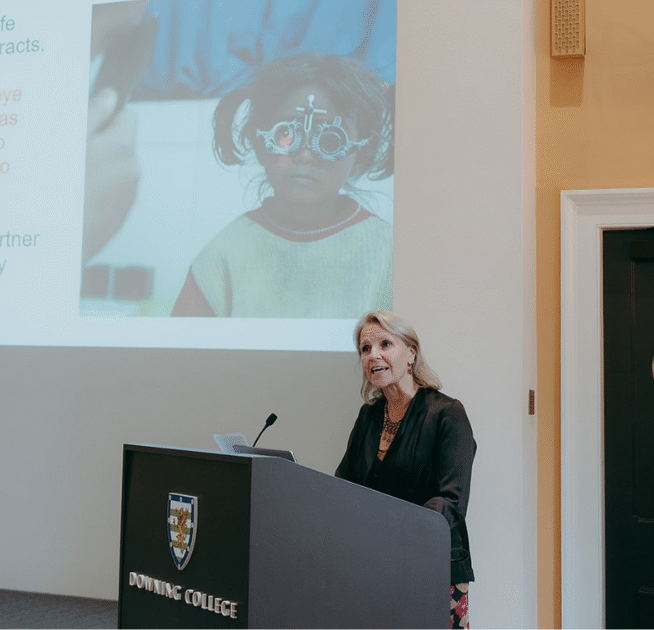Want to transform lives with us? Stay in touch and hear about our news, activities and appeals by email!
Latest figures show global blindness could triple by 2050

A new paper published estimates that 36 million people worldwide are blind, with the number set to triple over the next four decades .
The latest figures, published in the Lancet (open link in new tab) on 2nd August by the Vision Loss Expert Group (VLEG), shows that although the proportion of people globally who are blind has fallen since 1990, the number of people living with blindness could rise to 115 million by 2050 without a significant increase in available treatment. The prediction is based on the growing ageing population, as rates of blindness increase with age.
Kirsty Smith, CEO if CBM UK responded to the study saying,
“These latest figures underline the need for continued work in improving access to sight-saving treatment. The predicted rise in blindness is not inevitable – 80% of blindness can be avoided or treated – and the drop in rates of global blindness since 1990 shows that the work organisations like CBM are doing is effective. We just need to scale up our efforts to meet the challenges of the coming decades. Hopefully this new data will encourage more global investment in eye health because nobody should be needlessly blind.”
The paper, published in the Lancet by the Vision Loss Expert Group (VLEG), analyses data from 1990 to 2015 and also includes projections to 2020 for the first time.
Key Findings
- 36 million people are blind
- 217 million people live with severe or moderate visual impairment (distance)
- The prevalence of visual impairment has dropped from 4.58% in 1990 to 3.38% in 2015.
- 89% of visually impaired people live in low and middle-income countries
- 55% of visually impaired people are women
- Blindness affects 11.7 million people in South Asia and more than 4% of the population in parts of sub-Saharan Africa, but less than 0.5% of the population of Western Europe.
Read the full paper in the Lancet (open link in new tab)
Read more about CBM’s sight-saving work (open link in new tab)
Image: patients waiting to have their eye patches removed after sight-restoring cataract surgery at a CBM partner hospital in Cambodia. Cataract causes around half of the world’s blindness and can be treated with surgery for as little as £24.




